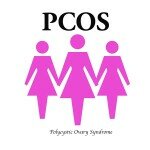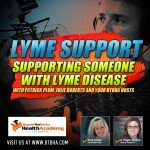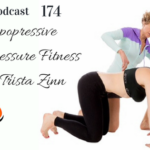
Can’t Get Pregnant, Fertility Tips You Need To Know
Fertility is a concern for many women and affects women of reproductive age on all different levels. There are psychological, physical, and chemical side effects for the seven million women that have to go through fertility treatment.
Many different issues and concerns can lead to infertility, and the purpose of this blog is to discuss some of the common concerns that are seen with infertility and therapeutic approaches that have been shown to help.
Addressing low progesterone levels
Low progesterone levels can be a major culprit for trouble conceiving and early miscarriages. If you have PCOS, PMS, light periods, spotting in between periods, dark brown spotting, or irregular periods, then you have signs and symptoms of low progesterone. This can interfere with your ability to conceive and maintain a pregnancy, especially in the first ten weeks of pregnancy. There are natural ways to increase your progesterone.
- Natural progesterone creams can be found that are usually wild yam based.
- Increase B6, Vitamin C, magnesium and zinc through either foods or supplementation. Both of these are necessary to help increase progesterone levels.
- Decrease stress levels. Cortisol is notorious for depleting progesterone levels due to something called “cortisol steal” where high-stress levels deplete progesterone levels.
- Chasteberry (vitex), turmeric, and oregano can help to increase progesterone levels.
- If you need further support with increasing progesterone levels or need your progesterone levels checked, find a local provider that can help you.
Addressing high estrogen levels
Fertility is really about hormonal balance. This means that it is not only important to make sure to get the progesterone levels higher but also to decrease estrogen levels. If there are higher levels of estrogen due to foreign estrogen exposure, birth control uses throughout your life, or other reasons, and then it is important to decrease estrogen exposure while breaking down the extra estrogen that is present. Some ways to reduce estrogen:
- Support liver detoxification and estrogen breakdown. This can be done with liver support and DIM, Indole-3-Carbinol. Cruciferous vegetables, like kale, broccoli, and cauliflower, will help with estrogen metabolism.
- Decrease your exposure to foreign estrogens such as soft plastics, water sources, and commercially raised meats.
- If you want more information about how to do a hormone and decrease estrogen levels, check out our Hormone Health Course.
Dietary changes
If inflammatory processes are going on in the digestive system that can lead to problems with fertility, then they must be addressed. Food sensitivities, especially gluten and dairy, can be culprits. I also highly recommend that women immediately take out refined sugar and artificial sweeteners when trying to get pregnant. Refined sugars cause problems with insulin which leads to further hormone problems. Artificial sweeteners are just a bad idea and confuse the body. Other dietary concerns can be explored by finding a health care practitioner that can run tests to check for food sensitivity markers. Or you can do an elimination diet to see what foods you cause a negative response.
What is the elimination diet?
An elimination diet is utilized to assess for possible food sensitivities. It is necessary to take out the potential food sensitivities including dairy, gluten, corn, rice, soy, sugar, citrus foods, and coffee. You must keep these foods out of your diet for a minimum of two weeks (I realize it is restrictive for these two weeks, but it must be done). Then you add back the foods one by one. However, as you introduce them to make sure that you only do one food for 72 hours because food reactions can occur anywhere between immediately eating the food and 72 hours after ingesting the food you are reacting to. Therefore, you must put 72 hours between the foods as you reintroduce them to your diet. If you put the food in and don’t have any negative response, then you can keep the food in your diet. If you notice a reaction, then you must take the food out of your diet.
Sometimes you have to decrease the bad stuff that can interfere with fertility.
First destress your life as much as possible. Stress management is a vital part of hormone balance and reproductive health. Also, make sure that you have completely cut out smoking and second-hand smoke. Alcohol and Caffeine can also interfere with the development of a healthy fetus. It is important to cut out all of these vices to promote fertility.

Increase healthy fats
The point can’t be stressed enough that the ovaries love fat and hormone production is dependent on good fats and avoiding processed and trans fats. Adding a good balance of healthy oils, Omega-3s, flaxseed, coconut, and sesame oil can have many benefits. This is especially true if you have or had a history of poor eating habits or an eating disorder because many of these women have strictly avoided fats. Feeding the ovaries can help to get the ovaries the fuel they need to produce eggs each month while providing what is necessary to drive the proper hormone cascade.
Check out these supplements
We already addressed that B6, Vitamin C, magnesium and zinc are beneficial in helping the fertility, but here are some other great supplements to add;
- Fish oil to increase the good fats and decrease inflammation
- Egg quality can also be improved by taking a daily dose of CoQ10
- Utilize Royal Jelly for hormone support and fertility
- D-chiro-inositol can be utilized if there are blood sugar concerns

Acupuncture and Chinese Herbs
Acupuncture can be phenomenal for infertility. Acupuncture has been used for centuries to help balance out hormones and the reproductive cycle. I recommend that you find an acupuncturist and herbalist that has experience treating fertility issues. Also, if you are trying to get pregnant, avoid herbs that can increase estrogen. Some of the herbs that can increase estrogen that hormonally challenged individuals might be on are Dong Quai, black cohosh, or red clover.
Utilize essential oils for fertility support
There are certain essential oils that really help to support the uterus and promote fertility. My three favorites are geranium, clary sage, and ylang ylang. I recommend to use them either topically with a carrier oil or diffuse them to support fertility.
Check heavy metals, especially copper
There are times when uterine problems and fertility are linked to heavy metals. The reason that copper tends to be a bigger concern is that the uterus is extremely sensitive to copper. This is evident because copper is utilized for contraceptive purposes, such as the Paragard non-hormonal IUD. However, if levels stay high due to environmental exposure than this will decrease the ability of the uterus to allow implantation. If you suspect higher levels, have then checked and treated by a functional medicine provider.
Check for MTHFR mutations
Many women are now having problems with a process called methylation due to genetic variations that are present in a significant amount of the population. We have learned a lot more about the MTHFR (Methylenetetrahydrofolate reductase) gene in the past few years. The methylation process is highly dependent on B vitamins, especially B9 (folic acid) and Vitamin B12. When there is a gene mutation than the wrong form of these B vitamins will lead to methylation that leads to problems in all cells but especially important in reproduction. When a woman is trying to conceive, it is suggested that she increased her folic acid to decrease the chance of neural tube defects. Folate is obviously vital during this time, but the wrong kind can wreak havoc on the body.
You need to avoid the synthetic version of folate- folic acid. It is important to remember that you still need to consume folate, and this is vital for the development of the child, but you need to check your form of folate and make sure that it is the methylated version. You also need the methylated version of B12. It is
possible to do a genetic test at 23andme.com.
Exercise
Movement and getting back in touch with your body is so vital. It also helps with insulin control which is beneficial to hormone support. We have also talked a lot about the need to manage stress and cortisol levels in order to promote pregnancy. Exercise can help to achieve this goal. I really find both yoga and pilates to be useful for fertility. Yoga has many benefits, especially if also used to help to connect the mind and body.
Make sure you are getting enough sleep
It is important to promote not only adequate levels of sleep but also ensure that circadian rhythm is intact. The reproductive cycle and regularity are dependent on the circadian rhythm. Studies have even shown the shift work and disruptions in sleep lead to more miscarriages. Therefore, it is important to get adequate sleep each note, promote proper melatonin secretion each night, and stay on a regular sleeping cycle.
Spice up the bedroom
We can’t end this blog with stating that it has been shown in research that there are reproductive benefits for both men and women when orgasms are reached. Men will ejaculate more sperm, and the contractions that go along with female orgasms leads to a higher chance of fertilization.
As you can see, there are many different aspects to fertility. It is important to work with a fertility specialist that can assess and treat you specifically for what you have going on. Best of wishes in getting pregnant!
FURTHER READS AND RESOURCES- Click on the link to find out more
- Estrogen Dominance Podcast: A major cause of low progesterone levels and infertility is estrogen dominance. Want to know more? Listen to this podcast as Dr. Meaghan and Wendy explore what causes estrogen dominance and what you can do to help combat it.
- PCOS blog: This blog is a great resource for PCOS women and discusses the specific issues regarding PCOS and fertility.
- PCOS Course: This comprehensive course put on by BTBHA talks about all different aspects of PCOS. Since fertility is a concern for many women with PCOS, a lot of the course gives suggestion and information specific to this topic.
- Hormone Health Course: Unfortunately our environment is full of foreign hormones and estrogens. This leads to many health issues. Want to find out more ways to balance your hormones naturally, check out this course.
Article by Dr. Meaghan Kirschling, DC, APRN, RN, MS








